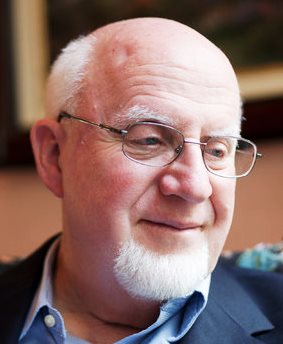
A number of gracEmail subscribers report a common frustration associated with new year’s resolutions. They resolve to achieve various stated goals, attain at least limited success for a time, then completely run off the rails.
Do I have any tips on ways they can increase their determination, effort, and results?
* * *
As I see it, merely upping the effort is not likely to help in this situation because the problem here is not lack of intensity. More likely, people break resolutions because they are not aligned with the resolver’s core mindset or worldview–the default attitude with which he or she instinctively confronts life every day. The Greeks had a root word for this default mindset–PHRON–and Paul uses it nine times in the 104 verses of his letter to the Philippians. In the process, he describes the ideal worldview for any Christian. Then, to make sure we understand it, he illustrates this ideal mindset with examples both good and bad.
We are not surprised that Paul begins with Jesus. “Have this MIND (PHRON),” he says, which was in Christ Jesus (Phil. 2:5). It put God first, others second. and self last. This mindset caused the etermal, creative, divine Word to empty himself, humble himself and become the man we know as Jesus of Nazareth, and finally to give himself to die for others. But God took care of faithful Jesus, raised him from the dead and gave him the seat of honor in heaven (2:5-11). This mind (PHRON) of Jesus is our pattern in relation to each other, the one mind (PHRON) we all may have, the same mind (PHRON) for all of us (2:2). Paul himself illustrates this example. Is it better for him to live or to die, he asks. Which is better for his people? (1:20-26). Their interests come ahead of his. Do his enemies exploit his inprisonment and preach the gospel from envy and malice? Never mind, Paul says, Christ is preached and that is what matters (1:12-18)
.Epaphroditus provides another good example of this worldview or mindset (PHRON). He delivered the Philippians’ care-package and money donation to Paul in prison in Rome. When Paul still had needs, Epaphroditus worked himself, risking his own health to make up what was lacking (2:25-30). On the other hand, Paul notes the bad examples of others who instinctively put themselves first. Paul says their god is their belly and they mind (PHRON) earthly things (3:17-19).
We all can rethink our resolutions in this light. We can begin by choosing goals with a heavenly origin and purpose. These resolutions can include specific behavior and activities, but also our FEELINGS (PHRON, 1:7) and our priorities and CONCERNS (PHRON, 4:10). We can frame our resolutions so they are expressions of the MIND (PHRON) of Christ. And, with God’s help, I predict we will do so with much success.